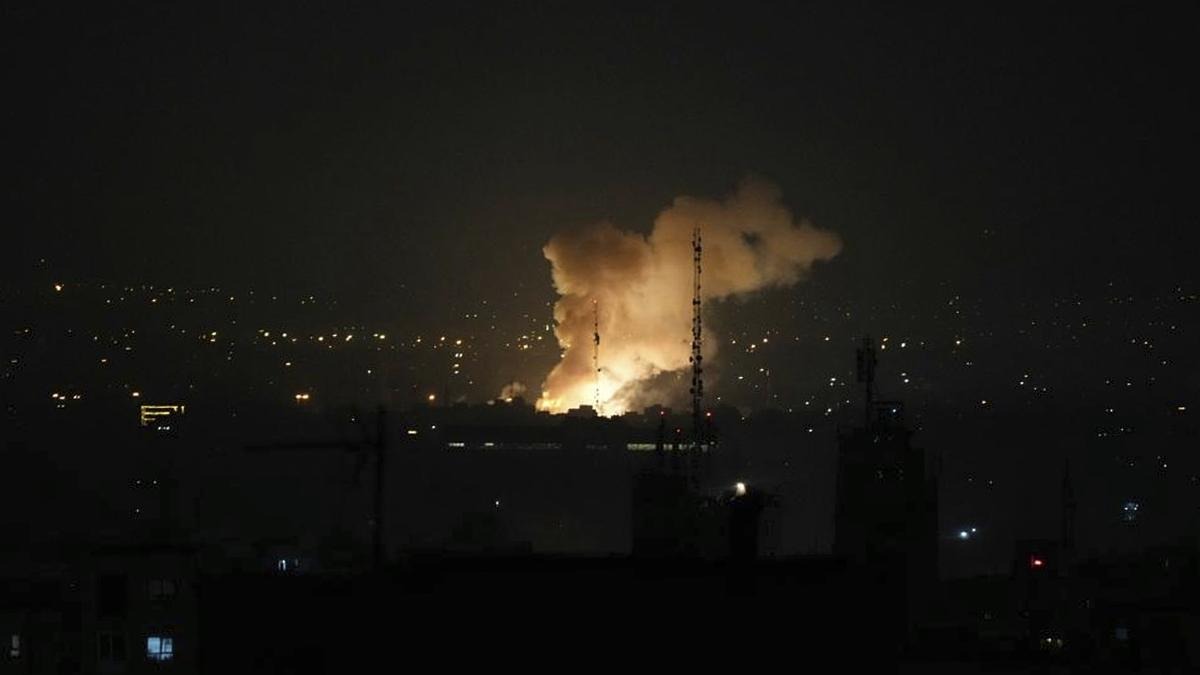Israel-Iran Clash: Missile Strikes Escalate Tensions in 2025

The Middle East is rocked by a rapid escalation of fighting between Israel and Iran, with airstrikes and missile strikes escalating fears of a broader regional war. Beginning early Friday, June 13, 2025, Israel launched a series of unprecedented attacks on Iranian military installations, prompting quick retaliation by Tehran. The war, in its fourth day up to June 16, 2025, has claimed many lives and caused widespread destruction, raising worldwide alarm on stability and oil markets.
Israel-Iran Attack News
Israel, on June 13, initiated “Operation Rising Lion,” aimed at Iranian nuclear facilities, military installations, and civilian infrastructure. The Israeli military justified the attacks as a preemptive action to dissuade Iran’s nuclear drive that Israel accuses poses threats to its existence. Iranian Supreme Leader Ali Khamenei condemned the attacks, predicting a “bitter and painful” fate for Israel. The attacks claimed top-level Iranian military commanders, including Iran’s highest-ranking military officer, Mohammad Bagheri, and several nuclear scientists, the BBC and Al Jazeera explained.
Israel-Iran Attack Latest News
Up to June 16, 2025, the battle raged on its fourth day as both nations exchanged back-and-forth rocket barrages. Iran retaliated with airstrikes, including hypersonic attacks on Israeli cities Tel Aviv and Haifa. Explosions rocked the cities, with at least 10 killed and over 200 wounded in Israel, Israeli officials stated. In Iran, 224 deaths and 1,481 injuries were reported by the Health Ministry, with heavy civilian casualties, including 20 children in an attack on a residential complex, Indian Express reported.
Israel Attack Iran Impact
The attacks interfered with the daily lives of both nations. In Tehran, residents faced fuel shortages with long lines at petrol stations with fear of further strikes on energy installations, including the South Pars gas field and Shahran oil depot. In Israel-Iran Clash, citizens were forced into shelters by sirens and missile attacks, with Haifa port infrastructure and one synagogue in Zavdiel being hit. World oil prices rose around 1% to $75 a barrel but analysts report no significant disruption of regional oil supplies yet.
Israel Attacks Iran Consequences
The consequences of the escalation are dire. Israel’s attack on nuclear sites has the potential for radioactive contamination and permanent pollution, as Al Jazeera cautioned. The U.S. was accused by Iran’s foreign ministry of complicity in the attack, claiming the attack required American coordination while U.S. President Donald Trump ruled out involvement. Global calls for restraint by Oman and South Africa have been disregarded, with Israeli Prime Minister Benjamin Netanyahu rejecting calls for de-escalation and regime change threats in Iran.
Israel Iran Attack Looms
Before the attacks, signs of an Israeli attack hung in the air. Hours before the operation, the U.S. began evacuating staff from the Middle East, and Trump had warned against the attack, citing upcoming nuclear talks with Iran. Despite these warnings, Israeli warplanes took off early Friday, striking over 170 targets in three days, including the Defense Ministry of Iran and energy targets.
Israel Iran Attack Analysis
Experts believe Israel’s belligerent stance is a result of a strategic deterioration of Iran’s regional proxies, including Hezbollah and Hamas, since October 2023. Israeli political commentator Ori Goldberg said Netanyahu saw domestic and foreign politics as the same thing with no immediate threat to warrant attacking under international law. Iran’s retaliatory missile strikes, while disruptive, were less effective, with Israel’s defenses downing many of them.
Israel Attacks Iran Timeline
The timeline began with Israel’s June 13 attack and Iran’s June 14 retaliatory missile strikes. Israel struck at Iran’s energy industry by the June 15, bombing a fuel depot. Iran launched daylight missile attacks on June 16 against Haifa and Tel Aviv, while Israel made attacks on Tehran.
Israel Iran Attack Damage
The devastation is extensive: Iran has 224 dead and widespread damage, including nuclear and energy facilities. In Israel, missiles have caused fires and hit infrastructure, killing a minimum of 10. The death toll and disruption to the economy increase, with neither side saying that it will give up.
FAQs
What is the problem between Israel and Iran?
The Israeli occupation of the West Bank and Gaza Strip, Jerusalem’s status, Israeli settlements, borders, security, water rights, the permit system in the West Bank and Gaza Strip, Palestinian freedom of movement, and the Palestinian right of return are the issues that Israel and Iran are facing.
Why are Iran and Israel fighting?
Because of Tehran’s rhetoric, its backing of regional proxy forces, and its financing and armament of Palestinian organisations like Hamas, Israel sees Iran as an existential threat.
Did the Iran missile hit Israel?
Yes, the Iranian missiles hit Israel.
Why did Israel attack the Iran embassy?
The Israeli military spokesperson said that it was neither an embassy or a consulate but it was an army building of Quds forces.
Who is more powerful Iran or Israel?
Israel has a qualitative edge in air power, missile defense, and nuclear capabilities, backed by U.S. support. Iran counters with manpower, a large missile arsenal, and asymmetric tactics, but faces technological and economic constraints.




